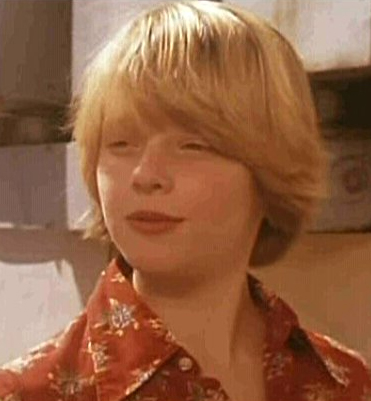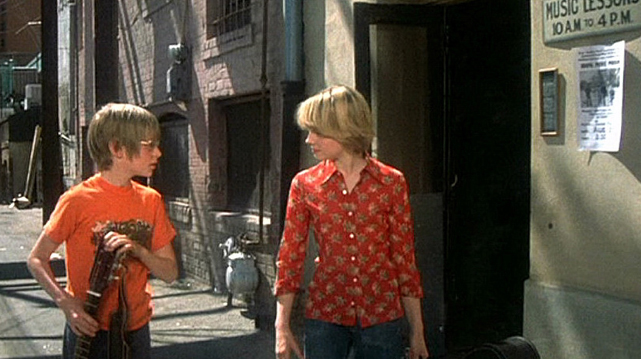 For Jodie Foster Week I invited guests to talk about favorite Foster films. Here is one of my favorite authors Manuel Muñoz ("What You see in the Dark," "The Faith Healer of Olive Avenue") on a pre-Taxi Driver Scorsese/Foster collaboration. - Nathaniel R]
For Jodie Foster Week I invited guests to talk about favorite Foster films. Here is one of my favorite authors Manuel Muñoz ("What You see in the Dark," "The Faith Healer of Olive Avenue") on a pre-Taxi Driver Scorsese/Foster collaboration. - Nathaniel R]
Coming up with another word for “precocious” is hard, since its precision begs no real qualification. The word bothers me a little as a go-to choice to describe Jodie Foster’s brief appearance in 1974’s Alice Doesn’t Live Here Anymore. What are we seeing in her portrayal of a girl who dislikes her real name (Doris) so much that she ditches it in favor of another (Audrey)? I thought my pleasure in rewatching Alice would come in getting to see Foster in that vulnerable adolescence where few of us had learned to mask, moderate, or amplify our sexual identities. How much more apparent would this be on camera, especially when we, as viewers, sometimes willingly blur the lines between performer and performance?
I’m happy to come away from Alice seeing Doris/Audrey as more than a thinly written tomboy role... [More]
True, the deep voice and short hair and reed-thin teenage posture of Audrey might get our radars tingling, but Foster’s handling of the role suggests she already understood the comic inversions made possible by Audrey’s appearance in the script
Her friendship with the diminutive Tommy (son of the titular Alice) comes as a way to fill a void in his life. Seeking friendship and a way to anchor himself in Tucson as his mother searches for both work and love, Tommy has nowhere to turn. Meeting Audrey, he senses an opportunity to align himself with someone cool, maybe even a substitute for a male role model. She calls Tucson “weird” with the authority of someone who knows more than Tommy ever could. Foster’s delivery is key. What I thought, years ago, to be a flat, rushed tone turns out to the voice of someone who values the listener she’s managed to ensnare. In the same way the lonely Tommy berates his mother with stories at the end of her long days, so too does Audrey easily pressure Tommy into doing her bidding by constantly dominating the conversation. She’s found an easy accomplice and she’s not about to let him go. “You wanna get high on Ripple?” she asks him, matter-of-factly, and even when Tommy first turns her down, she persists. When he turns her down again, she goes on to her next vice, enlisting Tommy as a shoplifting partner at the music store.
“Precocious” has to be the word to describe this short performance. While I’ll give credit to both the script and the direction for helping us see the fumbling seduction-in-the-works once Audrey manages to lure Tommy back to her place, I like how Foster plays up the innocence of these two kids. “Let’s do something,” she says. The next step might have been an awkward teenage kiss, but instead Audrey can only swipe at the overhead lamp, bored and frustrated with the drunk Tommy, but perhaps even relieved that the scene won’t play out like it’s supposed to. It’s a funny scene on its own, but it takes on another dimension when we consider the nervous date Alice went on with Ben (Harvey Keitel).

Foster’s a wearing a long skirt for this scene and sits close to Tommy as they drink, legs crossed, but we can already tell that Audrey sees limits to these roles. She has a sense of adventure and curiosity about her and isn’t one to be confined by boredom, even if it gets her into trouble. It’s no wonder Scorsese enlisted Foster to play the far more sexually charged (and, yes, precocious) Iris in Taxi Driver. There was evidence already of a skilled actress who could suggest the self-awareness of role-playing and duality in adolescence. Here, it was played for comic effect, but the real bravado behind Foster’s famous exit from Alice (“So long, suckers!”) was yet to be felt.

Related Posts
Interview: Manuel Muñoz on Psycho, Nashville and Movies As Inspiration
Jodie in Maverick
Jodie in Bugsy Malone
Introducing... Jodie Foster
